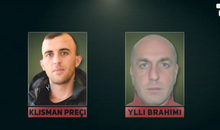
 Flash News
Flash News
Hell in the Gjadri camp, 45 attempted injuries and violent protests
Albanian man who dived into river to save his two deceased children from drowning gets tattooed on their faces
Why World War III is 'speaking', and the Albanian PM Rama is silent
Iran faces near-total internet blackout
Accident on the Grand Ring Road, two cars collide
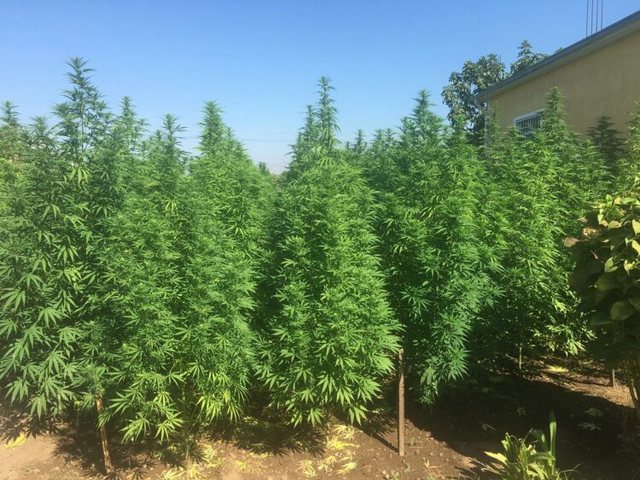
Experts warn that strict licensing conditions and a lack of transparency could exclude domestic producers and favor large private interests, increasing the risk of abuse.
The morning of July 21, 2023 will go down in history as the day when Albania officially opened the way to the legalization of cannabis for medical and industrial purposes. After a marathon session, the Parliament approved with 69 votes in favor, 3 abstentions and 23 against the draft law that was strongly opposed by the opposition and some critical voices even within the majority.
"69 votes in favor, 3 abstentions, 23 against. The draft law is approved in its entirety." - said the Speaker of the Assembly Lindita Nikolla, at the close of the parliamentary session.
The decision makes Albania the second country in the region, after North Macedonia, to legalize cannabis for medical and industrial use. But unlike the optimistic buzz that often accompanies such initiatives, the experience of neighbors and the skepticism of experts in key fields cast doubt on the effectiveness of the new law.
While authorities see it as a step towards developing the pharmaceutical industry and helping patients with serious illnesses, security experts and doctors warn of risks that go beyond medical ethics, including criminal consequences and institutional corruption.
Hashish “Made in Albania”
In December 2021, Prime Minister Edi Rama sought popular votes to "legalize" his legal initiatives, including that of legalizing cannabis.
The National Consultation Questionnaire began on January 19 and ran until March 31, 2022. Through this survey, Albanian citizens had the opportunity to express themselves directly regarding the legalization of cannabis for various purposes, mainly for medical use.
According to the official results of the survey, the majority of citizens expressed their support for the legalization of cannabis, with government data showing that 308,992 people said yes to the initiative, 148,092 opposed it, and 51,051 abstained. This was enough for the government to initiate legal steps to institutionalize the initiative in a bill that was approved by the socialist parliamentary majority.
On July 21, 2023, with a simple majority of votes, the Assembly approved with 69 votes and because for the opposition "the legalization of cannabis is not the path to economic development and could bring social consequences, especially for young people."
This was the reason why 23 MPs voted against, while 39 others did not participate in the vote.
But even within the ranks of the majority, the initiative did not find unanimous support. Fatmir Xhafaj, former Minister of Justice and one of the influential voices in the Socialist Party, along with Pandeli Majko and Erion Braçe, abstained.
Nga foltorja e Kuvendit, Xhafaj ngriti një pyetje që vazhdon të shqetëojë ekspertët e sigurisë edhe pas miratimit të ligjit:
“A është ky aktiviteti financiar që na duhet në këto momente? A është gati shoqëria jonë për këtë lloj aktiviteti me risqe të mëdha sociale, edukative dhe sigurie?” – deklaroi ish-mistri i Brendshëm.
Por për qeverinë Rama, vendi mund shndërrohet në një qendër e rëndësishme e prodhimit të kanabisit mjekësor në rajon, ku aso kohe u tha se industria globale e kanabisit mjekësor vlerësohej në 13 miliardë euro në vitin 2023. Me klimën e saj mesdhetare dhe tokën pjellore, Shqipëria ka shumë shanse për të fituar këtë rol.
Ligji për legalizimin e kanabisit parashikon kultivimin, përpunimin dhe prodhimin e kanabisit në kushte të kontrolluara, për qëllime mjekësore dhe industriale, përmes një sistemi të posaçëm licencimi.
Çfarë sjell ligji nr.61/2023?
“Ligji për legalizimin e kanabisit mjekësor u miratua nga Kuvendi më 21 korrik 2023. Ai parashikon kultivimin, përpunimin dhe prodhimin e kanabisit në kushte të kontrolluara, për qëllime mjekësore dhe industriale, përmes një sistemi të posaçëm licencimi.
Një institucion i ri – Agjencia Kombëtare e Kontrollit të Cannabis-it (AKKC) – është krijuar për të mbikëqyrur procesin, nga kultivimi deri te eksportimi. “Misioni ynë është kontrolli, monitorimi dhe inspektimi i zbatimit të ligjit dhe standardeve në çdo fazë të procesit”, njofton zyrtarisht AKKC për shteg.org.
Ligji kufizon sipërfaqen maksimale të lejuar për kultivim në 200 hektarë në total për gjithë vendin. Secili aplikant mund të marrë nga 5 deri në 10 hektarë për kultivim mjekësor, ndërsa për qëllime industriale kufiri është nga 1 hektar e lart.”
Aplikantët për licencë duhet të përmbushin kritere
Sipërfaqe të përcaktuar (min. 5 ha – max. 10 ha).
Pastërti figure dhe dokumentacion të plotë financiar e sigurie.
Eksperiencë të mëparshme në kultivim ose tregti (min. 3 vjet).
Kapital minimal prej 100 milion lekësh.
Aksionerë nga vende të OECD-së me të paktën 5 vite aktivitet.
Marrëveshje paraprake shitjeje dhe praktika të mira prodhimi.
Një institucion i ri, Agjencia Kombëtare e Kontrollit të Cannabis-it (AKKC), është krijuar për të mbikëqyrur procesin, nga kultivimi deri te eksportimi. “Misioni ynë është kontrolli, monitorimi dhe inspektimi i zbatimit të ligjit dhe standardeve në çdo fazë të procesit”, njofton zyrtarisht AKKC për “shteg.org”.
Ligji kufizon sipërfaqen maksimale të lejuar për kultivim në 200 hektarë në total për gjithë vendin. Secili aplikant mund të marrë nga 5 deri në 10 hektarë për kultivim mjekësor, ndërsa për qëllime industriale kufiri është nga 1 hektar e lart.
Mjeku toksikolog Alert Drishti, në një intervistë për “shteg.org”, pranon vlerat e kanabisit mjekësor, por ngre shqetësime për etikën profesionale dhe mungesën e kapaciteteve farmaceutike në vend.
“Përdorimi i tij është i pranueshëm vetëm kur medikamentet e tjera nuk japin efekt. Por Shqipëria nuk ka kapacitet industrial për prodhimin e medikamenteve me përbërje kanabisi”, thekson ai.
Ai shton se përdorimi duhet të jetë i kontrolluar dhe i kufizuar vetëm në rastet kur rekomandohet nga manualet mjekësore ndërkombëtare, të cilat aktualisht mungojnë në sistemin shëndetësor shqiptar.
“Vetë mjeku është shprehur i shqetësuar pikërisht për këtë pikë pasi vendi jonë duhet të sigurojë një vend tjetër për prodhimin e këtyre medikamenteve sepse duhet industri farmaceutike për prodhimin e tyre. Gjë që Shqipëria nuk e ka një industri të tillë për ta zhvilluar vetë” – thotë doktori. Ndërsa nga ana tjetër qëndron edhe ajo që quhet siguria në përdorimin dhe prodhimin e këtij kanabisi.
Për ekspertin e sigurisë Fatjon Softo problemi kryesor nuk është ligji vetë, por zbatimi i tij.
“Rreziku qëndron tek zbatimi, duke filluar që nga procedurat e dhënies së licencës, kontrollit të prodhimit dhe zinxhirit të furnizimit për ta monitoruar atë me transparencë dhe nga institucione të pavarura përveç atyre të përcaktuara me ligj. Ku në këtë rast, mund të kemi ndikim negativ nëse mungon aftësia institucionale për ta menaxhuar këtë tregti”, thotë ai.
Softo paralajmëron se Shqipëria, me historinë e saj të gjatë në kultivimin ilegal të kanabisit, rrezikon që të rikthehet në qendër të vëmendjes së tregjeve të paligjshme nëse nuk vendosen mekanizma të fortë kontrolli.
“Grupet kriminale janë të fuqishme, me influenca, me financa që mund të korruptojnë persona publik dhe me influencë në vendimmarrje. Kjo gjendje dhe historia e kriminalizimit të disa institucioneve, në nivelin e punonjësve në administratë, me interesa politikë dhe ekonomikë kanë ndihmuar futjen e tyre në ekonomi, tendera publik dhe pastrim parash.” – thotë Softo.
Përvoja e hidhur
Në vitin 2016, ndërkohë që Shqipëria luftonte me parcelat e mbjella ilegalisht, Maqedonia e Veriut legalizoi kanabisin për qëllime mjekësore, me premtimin se kjo do të sillte përfitime ekonomike dhe punësim. Por realiteti doli i hidhur.
Nga 67 kompani të licencuara për përpunimin e vajit të kanabisit, mbijetuan vetëm 5. Vetëm një eksporton. Nga 100 milionë euro të pritshme, përfunduam me vetëm 2 milionë euro shitje në vit dhe shumë pak të punësuar në sektor.
Mungesa e investimeve serioze dhe e interesit nga kompanitë farmaceutike thuajse çuan në falimentim këtë industri në Maqedoni.
Ndërsa në Shqipëri ligji tashmë është miratuar, deri më tani asnjë kompani nuk ka paraqitur interes për t’u licencuar.
Ligji për legalizimin e kanabisit për qëllime mjekësore në Shqipëri përcakton kufizime të qarta për sipërfaqet e kultivimit. Në nivel kombëtar, lejohet të kultivohen deri në 200 hektarë, ndërsa çdo njësi e licencuar duhet të ketë një sipërfaqe që varion nga 5 deri në 10 hektarë.
Cannabis cultivation licenses are issued for a 15-year term and require the payment of a non-refundable fee. The law provides for control and reassessment every three years, and in case of violations, the measure of suspension, revocation of the license or temporary ban on activity may be taken. The law also provides for severe penalties for violations of the conditions, including fines ranging from 500 thousand to 5 million lek and ban on activity from 6 months to 3 years.
To obtain a license, companies must meet very strict criteria that practically exclude most Albanian entities. Previous international experience in the cannabis field is required, a minimum capital of 100 million lek, a detailed business and security plan, and a commitment to hiring experienced specialists. Entities must also guarantee transparency, cooperate with authorities, and provide a financial contribution in the form of an annual fee and a bank guarantee.
But security expert Fatjon Softo raises questions about the way the law is being implemented.
"The risk lies in implementation, from issuing licenses to controlling production and the supply chain. If institutional capacity and transparency are lacking, then we will have a serious problem," says Softo, who according to him, the law could contribute to an increase in crime in the country.
"This can happen if the operation of production is not controlled according to the law. Criminal activities such as distribution outside the medical framework, illegal export or money laundering can be created."
"Albania has a long history with cannabis. Without strong oversight, criminal groups can easily get involved. They are powerful, influential and have the funds to corrupt institutions," the expert explains.
Meanwhile, in implementation of the law, on March 6, 2025, the Council of Ministers approved the cadastral areas where the cultivation of cannabis for industrial purposes will be permitted.
According to the decision, there will be 138 villages in seven regions for the cultivation of cannabis for medical and industrial purposes. The region with the most licensed villages is Gjirokastra with 53 villages, followed by Kukës with 23 and Shkodra with 17. In Vlora, 15 villages have been licensed, while Fier has the smallest number with only 4 villages included in this initiative.
The government has set clear standards for the lands where medical cannabis cultivation will be allowed. The plots cannot be located in protected areas, in territories of tourist importance, forests, pastures or meadows, and must be away from military or urban areas. It has also been decided that each plot must be at least 3 kilometers as the crow flies away from bee parks and military areas, in order to maintain environmental balance and safety.
/Path.org
Latest news


Zhulali: EU does not tolerate basic standards, membership is a political process
2025-06-18 22:40:09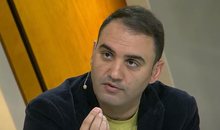
Recount process/Këlliçi: DP seeks 14th mandate in Tirana
2025-06-18 22:11:20
Hell in the Gjadri camp, 45 attempted injuries and violent protests
2025-06-18 21:49:49

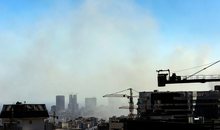
Israel strikes National Police headquarters in Iran, several injured reported
2025-06-18 21:29:11

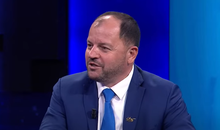


Why World War III is 'speaking', and the Albanian PM Rama is silent
2025-06-18 20:08:03
Avoid drying towels in the sun, here's how to keep them soft
2025-06-18 20:07:53

Cannabis legalization in Albania, new law, old risks
2025-06-18 19:39:54

Pope Leo XIV calls for peace: Advanced weapons are temptations we must reject
2025-06-18 19:22:29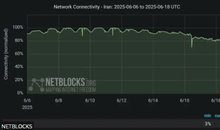
Iran faces near-total internet blackout
2025-06-18 19:07:09

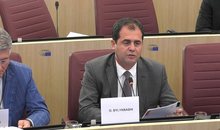


INSTAT: Heart diseases, the leading cause of death in Albania during 2024
2025-06-18 18:05:33



Trump does not rule out the possibility of striking Iran
2025-06-18 17:19:35
Accident on the Grand Ring Road, two cars collide
2025-06-18 17:05:57
Kume: Vote recount increases credibility
2025-06-18 16:59:38
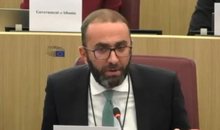

Ndërron jetë ish-futbollisti dhe trajneri i njohur shqiptar
2025-06-18 16:17:02
EU calls for "comprehensive reforms" for the media in Albania
2025-06-18 16:06:20
Macron convenes France's Defense and Security Council
2025-06-18 16:04:29
Israeli attacks in the last 24 hours, at least 140 killed in Gaza
2025-06-18 15:58:13
Reflection on Rama's kneeling before Meloni
2025-06-18 15:52:53

Conference League second round draw, Albanian teams learn potential opponents
2025-06-18 15:29:29

Eurostat 2024: Prices in Albania are catching up with EU levels
2025-06-18 15:07:03
War/ Why is Russia hesitant to help Iran in its conflict with Israel?
2025-06-18 15:00:19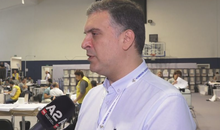
Blushi: Ilir Meta's voice will resound louder than ever in the new Parliament
2025-06-18 14:50:42
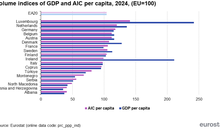


The Electoral College also rejects the DP's complaint for Kukës and Gjirokastra
2025-06-18 14:09:49


The College rejects the DP's request for invalidation of the elections in Lezha
2025-06-18 13:41:57
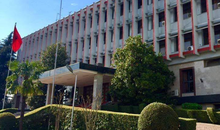
Evacuation of 5 Albanians from Israel, 3 of them arrive in Albania
2025-06-18 13:23:34
Amidst chaos and abuse, is Albania ready to offer sustainable tourism?
2025-06-18 13:01:56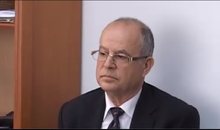

SMILE.al - 5 years of history, the best version of success!
2025-06-18 12:42:25

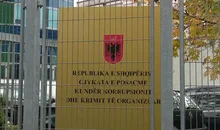

Causes of death in Albania, heart disease leads, suicides increase
2025-06-18 11:47:36
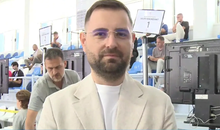


The claim for Jorgo Goro is postponed
2025-06-18 10:59:17
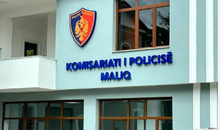
Gave candy and attempted to abuse minor, 60-year-old arrested in Maliq
2025-06-18 10:33:10
Israel, Iran, us and our world
2025-06-18 10:21:43
Vote recount for Tirana, Ilir Alimehmeti also present in the process
2025-06-18 10:13:14

Why is Russia hesitant to help Iran in its conflict with Israel?
2025-06-18 10:00:55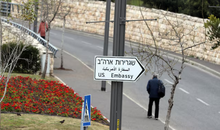
Israel-Iran War/ US Embassy in Jerusalem Temporarily Closed
2025-06-18 09:42:06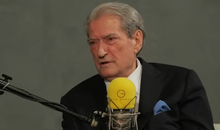
"I wanted to become a writer", Berisha recounts his dream left half-abandoned
2025-06-18 09:33:52
Author of several thefts, thief from Tirana caught in Durrës (NAME)
2025-06-18 09:24:20

Taksa të larta dhe diskrimin, pse emigrantët po largohen përsëri nga Gjermania?
2025-06-18 09:02:32
Socially dangerous person, 27-year-old arrested in Pogradec
2025-06-18 08:51:39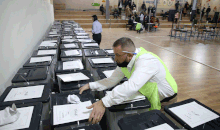
The recount of votes for the Tirana district begins today
2025-06-18 08:37:37

Horoscope, what do the stars have in store for you today?
2025-06-18 08:12:05

Morning Post/ In 2 lines: What mattered yesterday in Albania
2025-06-18 07:45:20


Former prosecutor: Criminal groups are more structured in Albania
2025-06-17 22:02:21
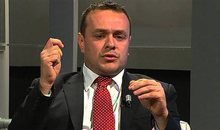


Korça/ A woman comes into contact with electricity
2025-06-17 20:55:40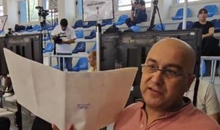

Death makes you neither good nor bad.
2025-06-17 20:38:05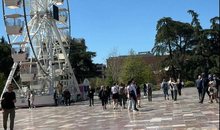
Only 1 in 5 tourists sleep in apartments or hotels
2025-06-17 20:25:16

European Commission proposes complete ban on Russian gas imports
2025-06-17 19:46:58
'Serious concern': EU condemns government attacks on SPAK after Veliaj's arrest
2025-06-17 19:36:01
Fuel prices soar amid Israel-Iran tensions
2025-06-17 19:19:12


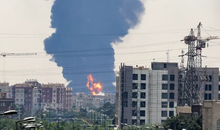
Iranian military says it struck Israeli military intelligence center in Tel Aviv
2025-06-17 18:17:27
The recount of 94 boxes of Gramsh and Peqin is completed
2025-06-17 18:08:47
Source: The world order is destroyed, how is the world being run today
2025-06-17 17:50:28
